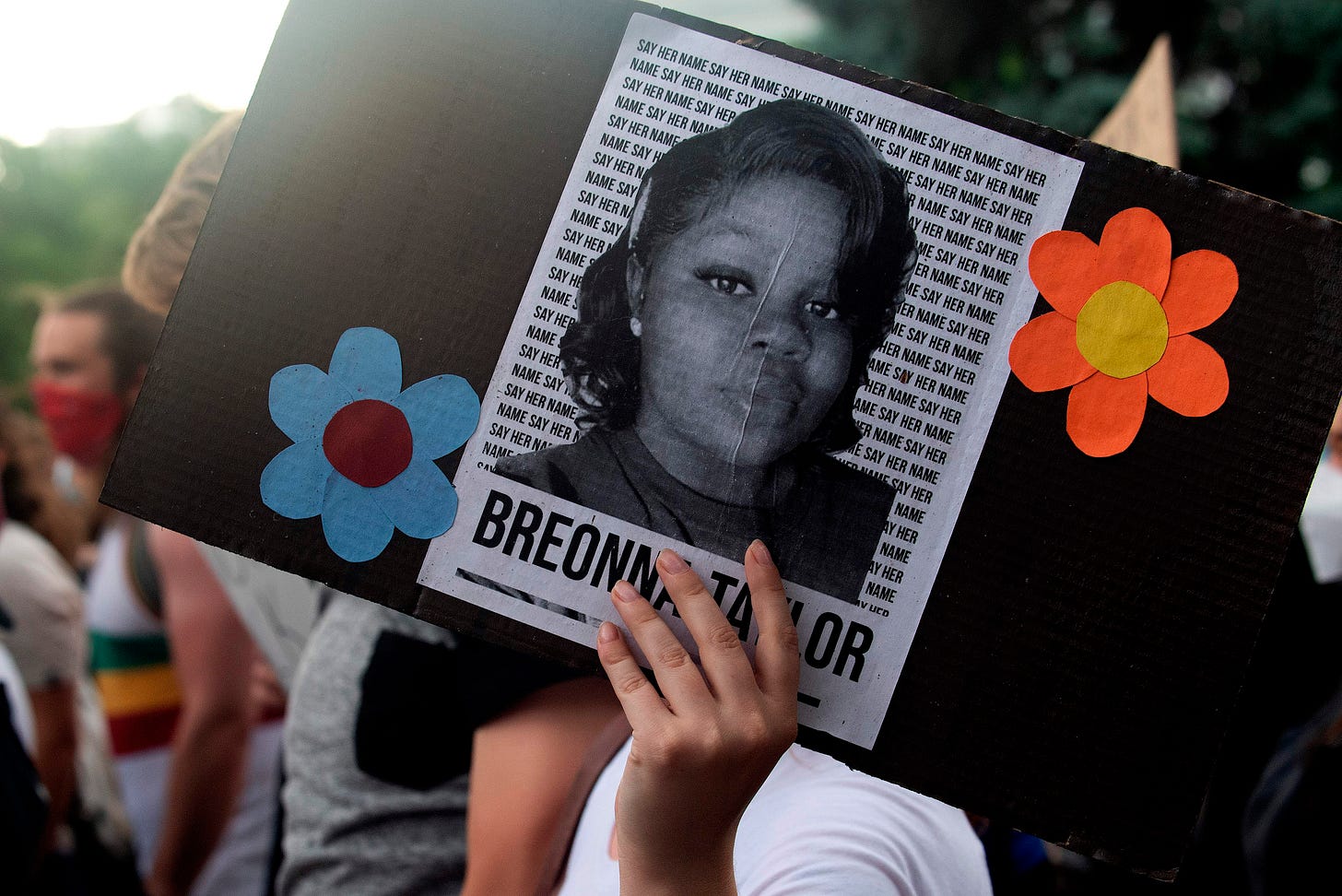Louisville Police Used "No-Knock" to Target Black Communities
New reports reveal an alarming number of "no-knock" warrants were issued for an area of Louisville with predominantly Black residents, as the amount of overall warrants rivals much larger cities.
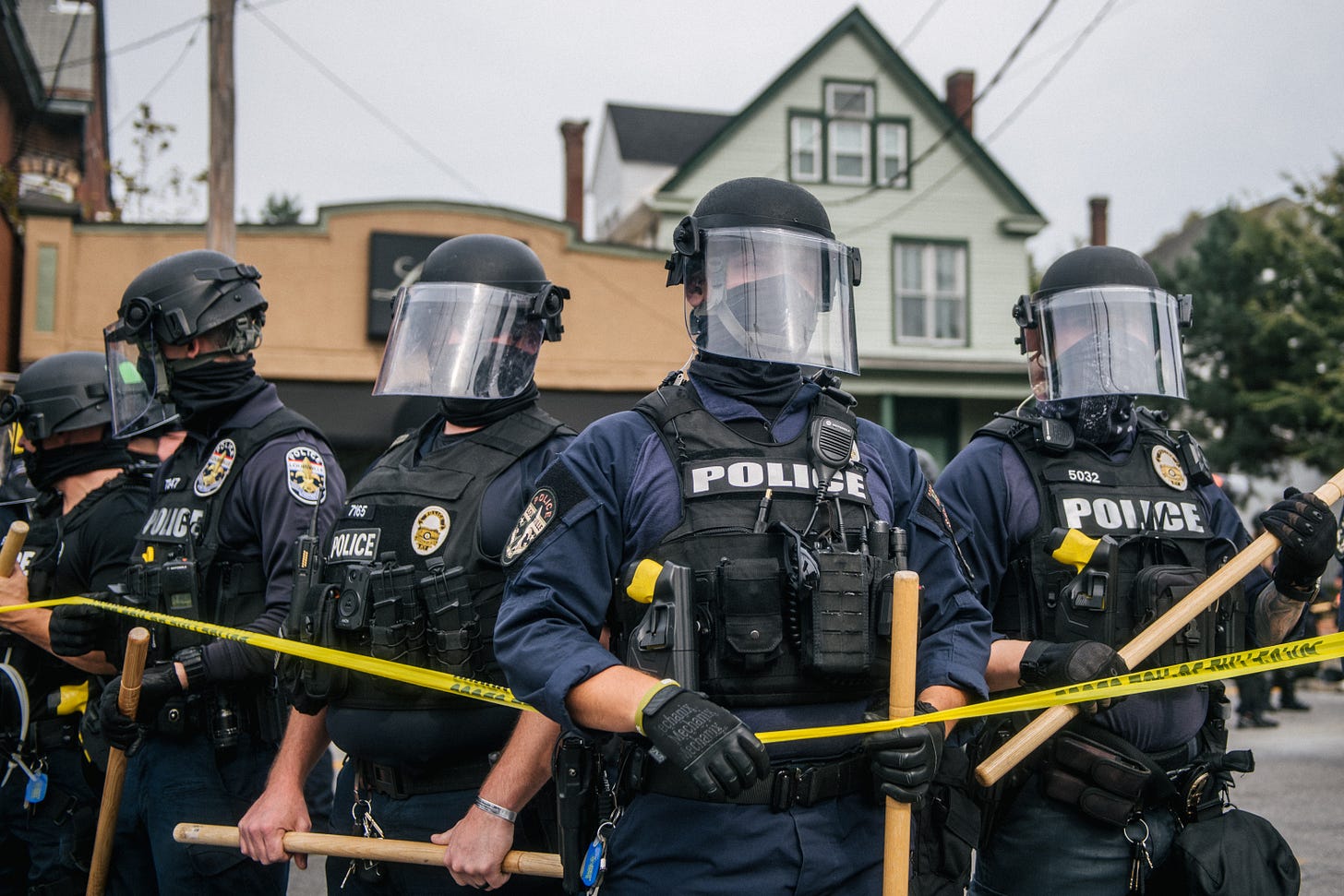
A Courier Journal analysis has found that Louisville Metro Police intentionally targeted Black residents living in Louisville’s West End with invasive "no-knock" search warrants, just like the kind that led to the death of Breonna Taylor. A no-knock warrant is a search warrant, issued by a judge, that allows law enforcement to enter a person’s property or dwelling without immediate prior auditory notification to the residents inside, such as by knocking or ringing a doorbell.
Generally, a police officer executing a standard search warrant is required to knock, identify themselves and their intent, and wait a reasonable amount of time for the occupants to let him or her into the residence. These no-knock warrants are justified by a sworn affidavit from officers claiming that announcing police presence beforehand would lead to the destruction of the evidence, or would compromise the safety of the police or another individual.
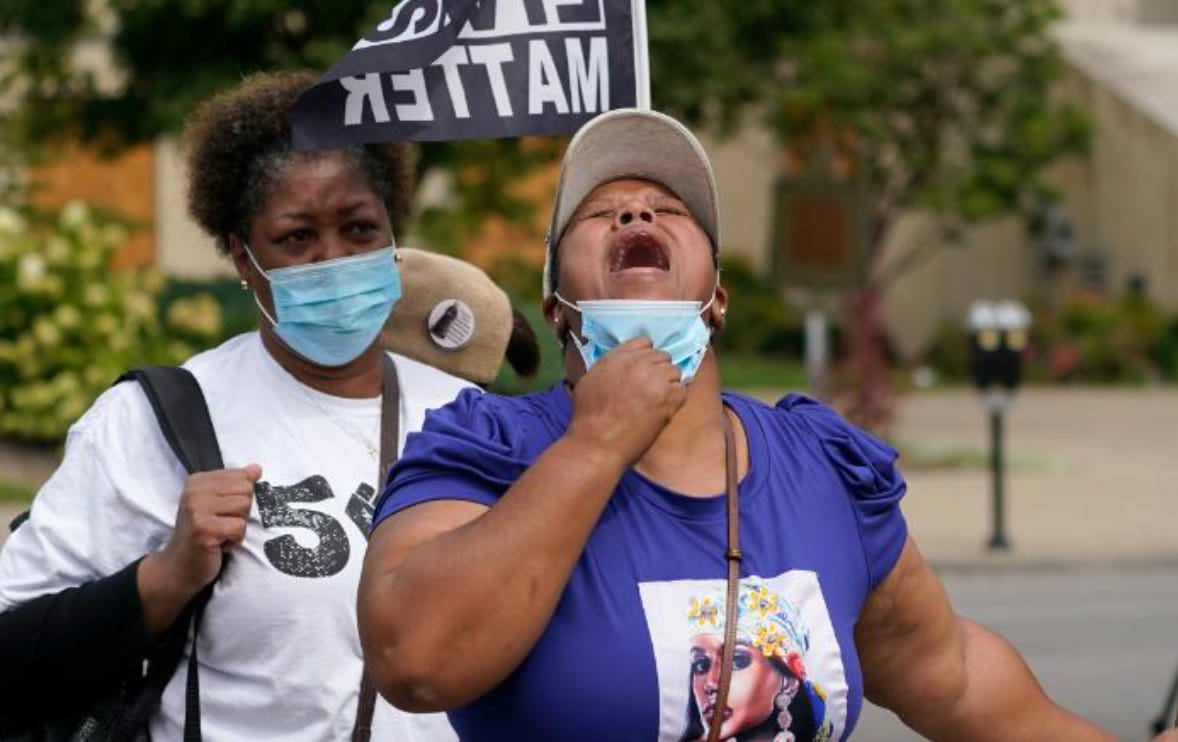
According to the Department of Justice, “such a warrant does not entitle officers to disregard reliable information clearly negating the existence of exigent circumstances when they actually receive such information before execution of the warrant."
Following the death of Breonna Taylor, the City of Louisville banned no-knock warrants in June of this year. In the two years leading up to the ban, the Louisville Metro Police Department (LMPD) has confirmed that their officers requested, and were given court approval for at least 27 no-knock warrants.
The investigation recently conducted by the Courier Journal has found that of the 22 warrants examined (the remaining five remain under seal by a judge), 82% of the listed suspects in these instances were Black. Moreover, 68% of those listed on the warrants had addresses in the city's West End, an area of Louisville with a high population of Black residents.
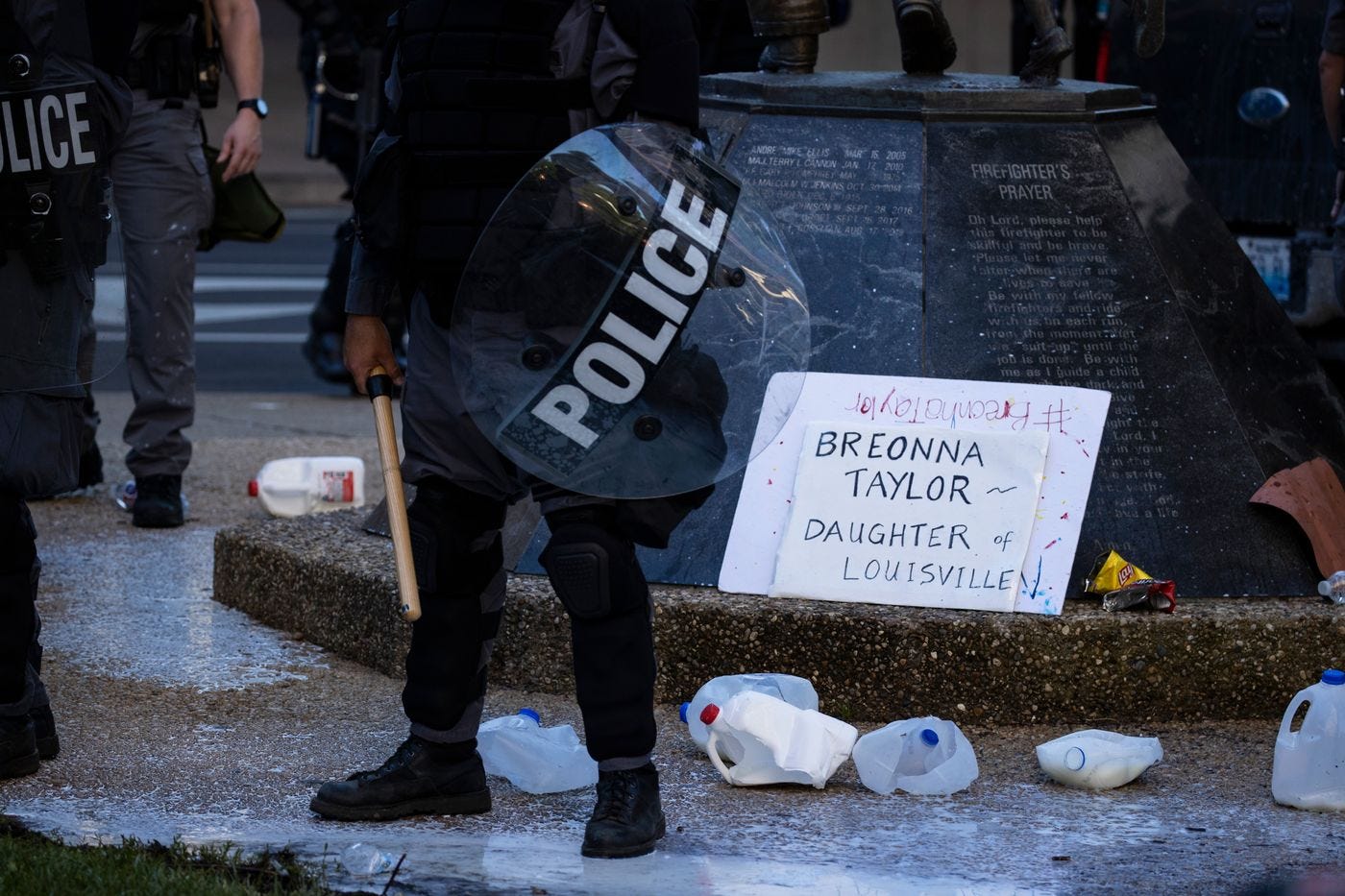
State Rep. Attica Scott, Kentucky's recently elected, only Black female legislator and the sponsor of Breonna's Law, which seeks to ban no-knock search warrants statewide, said the findings are just another glaring example of disproportionate policing by LMPD in Black communities. "Policing has historically, and continues to be, racially disparate," Scott said. "It's not mentally, emotionally, physically or spiritually healthy for people to live in fear of law enforcement or to cringe when they see them coming."
These types of warrants are just a portion of the thousands of search warrants served on the Black community by LMPD officers every year. In 2019 alone, Louisville Police conducted more than 3,000 court-authorized searches. If the statistics for no-knock warrants are consistent in this area as well, that would mean that a predominance of regular warrants were served on Black citizens — which means thousands of people of color were searched in 2019 by LMPD.
To put that in perspective, a much larger city like Chicago issued over 11,000 warrants total within the five year period of 2012-2017. This means that on average, just over 2,000 regular warrants were issued per year in Chicago. The number of standard warrants conducted by Louisville Police in 2019, with a population of 771,000 people, was more than 3,000.
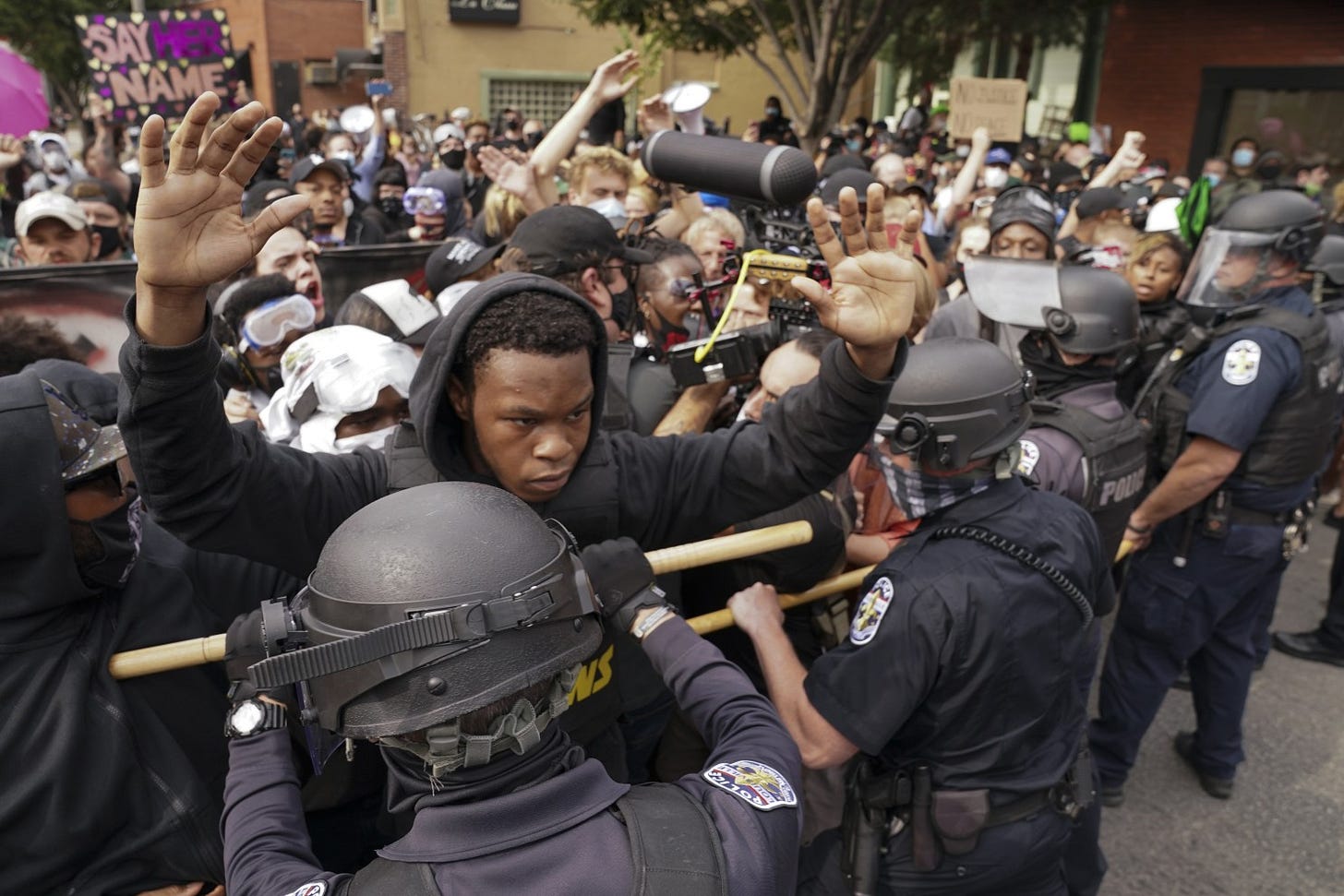
Essentially, Louisville is roughly on track to equal or surpass the number of warrants issued in a much larger jurisdiction like Chicago, with a population of 2.7 million. Incidentally, the number of warrants issued in Chicago that targeted Black communities was overwhelmingly disproportionate, as well.
This latest Louisville data follows a series of increased, high-profile deaths of Black people resulting from law enforcement’s actions, as well as a string of shocking allegations of rampant child sex abuse cases involving LMPD officers. In addition to the many cases involving the systemic rape of children entrusted to the care of LMPD officers within the Explorer Scout program for kids, there are also ongoing accusations that the Louisville Police has actively concealed and possibly destroyed documents and evidence relating to those cases and others.
Recently jurors involved in the Grand Jury process for Breonna Taylor’s case, also publicly questioned the way in which those proceedings were handled; specifically how the jury was instructed to disregard important information. A juror in the case accused Attorney General Daniel Cameron of “using the grand jurors as a shield to deflect accountability and responsibility.”
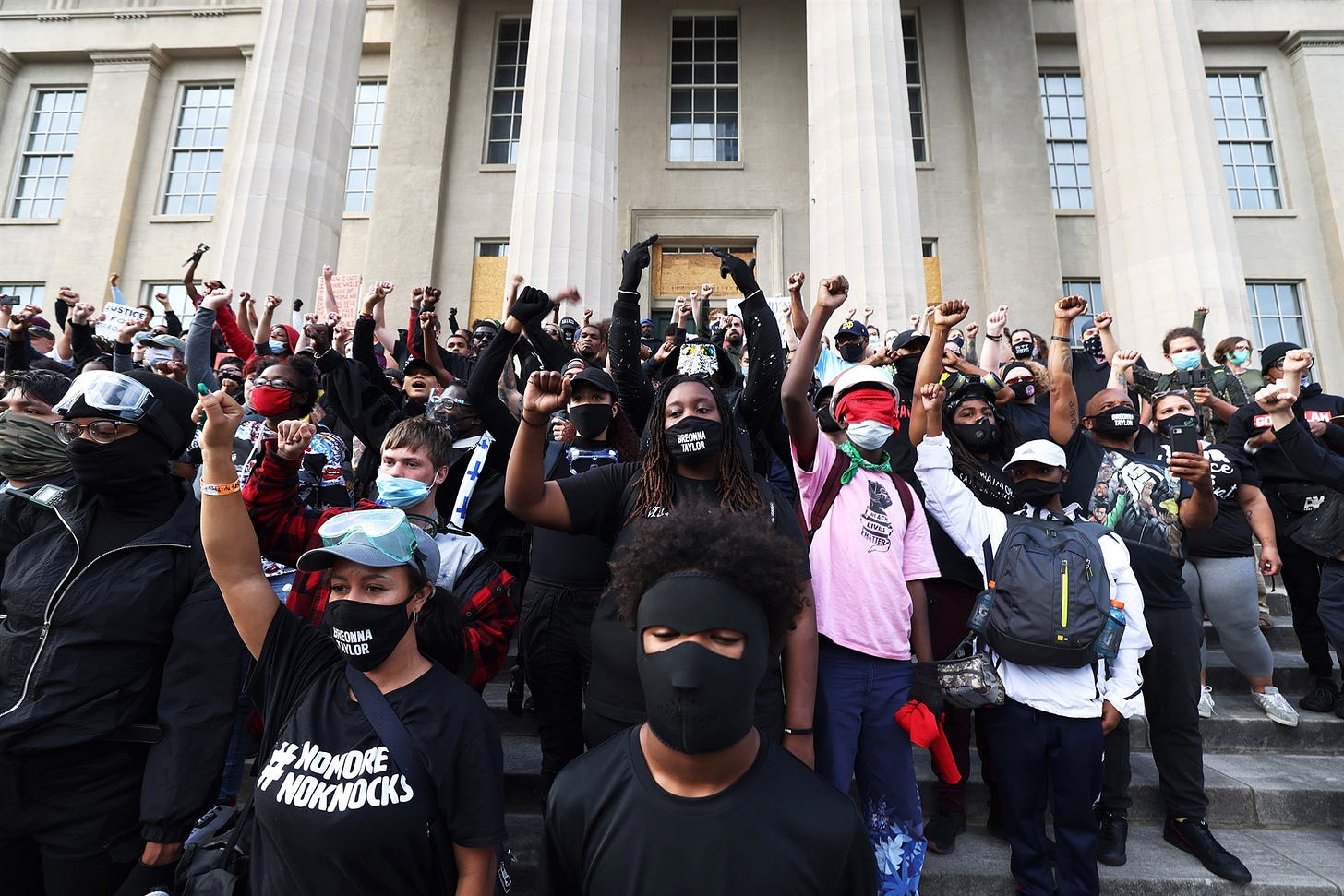
While instituting a ban on no-knock warrants is a great place to start, the ban has not been initiated statewide, or in other locations that have similar statistical problems with disproportionate policing standards. Given the intense scrutiny that LMPD has recently been under, the fact that we are still dealing with issues of concealing evidence, and a police department that is far from forthcoming, should continue to alarm Americans everywhere.
While it’s clear that reform is still a critical and ongoing issue in Louisville, it’s important that we continue to push for answers on exactly how far the corruption goes and how much evidence has been obscured, so that the clean-up is not only just, but also comprehensive.
In memory of Breonna Taylor: June 5, 1993 - March 13, 2020: Say her name.
Amee Vanderpool writes the SHERO Newsletter and is an attorney, published author, and she will continue to highlight these ongoing, systematic abuses by the LMPD and nationwide until true reform is accomplished.
For a limited time, an annual subscription to SHERO is at a reduced rate and it will be an essential tool in helping you to navigate the new legal and political landscape. Paid subscriptions allow SHERO to keep publishing critical and informative work, like this article, that is often made available to the public — thank you.




